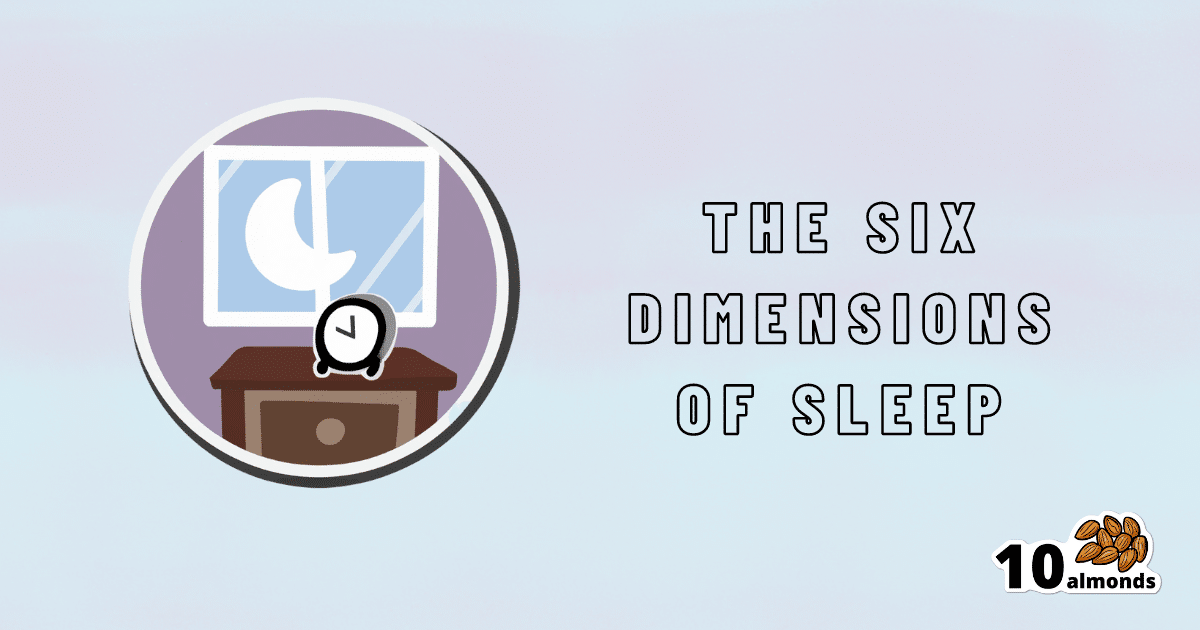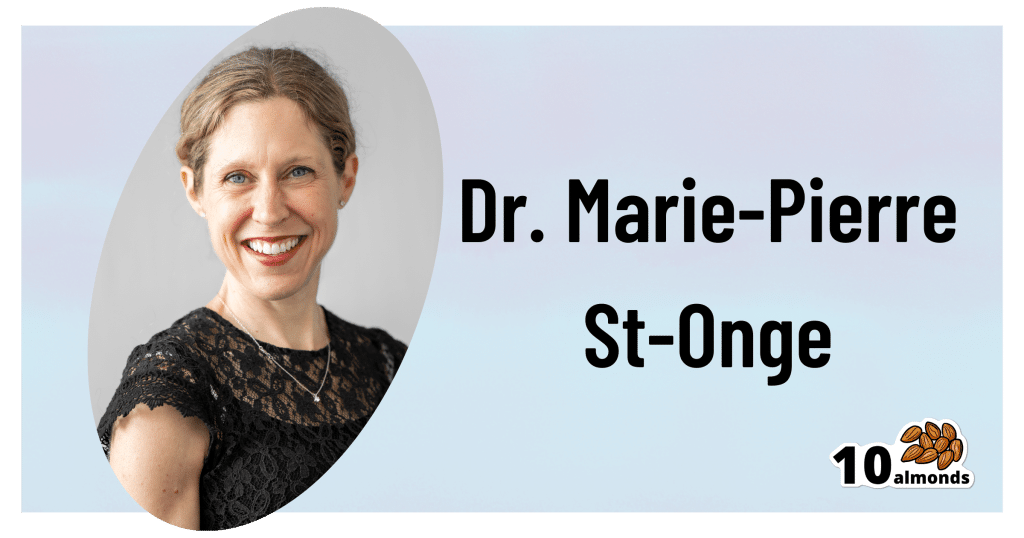The 6 Dimensions Of Sleep (And Why They Matter)
How Well Do You Sleep? Dr. Marie-Pierre St-Onge from Columbia University’s Center of Excellence for Sleep and Circadian Research explores the impact of lifestyle on cardio-metabolic risk factors.

How Good Is Your Sleep, Really?

This is Dr. Marie-Pierre St-Onge, Director of Columbia University’s Center of Excellence for Sleep and Circadian Research.
The focus of Dr. St-Onge’s research is the study of the impact of lifestyle, especially sleep and diet, on cardio-metabolic risk factors.
She conducts clinical research combining her expertise on sleep, nutrition, and energy regulation.
What kind of things do her studies look at?
Her work focuses on questions about…
- The role of circadian rhythms (including sleep duration and timing)
- Meal timing and eating patterns
…and their impact on cardio-metabolic risk.
What does she want us to know?
First things first, when not to worry:
❝Getting a bad night’s sleep once in a while isn’t anything to worry about. That’s what we would describe as transient insomnia. Chronic insomnia occurs when you spend three months or more without regular sleep, and that is when I would start to be concerned.❞
But… as prevention is (as ever) better than cure, she also advises that we do pay attention to our sleep! And, as for how to do that…
The Six Dimensions of Sleep
One useful definition of overall sleep health is the RU-Sated framework, which assesses six key dimensions of sleep that have been consistently associated with better health outcomes. These are:
- regularity
- satisfaction with sleep
- alertness during waking hours
- timing of sleep
- efficiency of sleep
- duration of sleep
You’ll notice that some of these things you can only really know if you use a sleep-monitoring app. She does recommend the use of those, and so do we!
We reviewed and compared some of the most popular sleep-monitoring apps! You can check them out here: Time For Some Pillow Talk
You also might like…
We’re not all the same with regard to when is the best time for us to sleep, so:
Use This Sleep Cycle Calculator To Figure Out the Optimal Time for You To Go to Bed and Wake Up
🌎 AROUND THE WEB
What’s happening in the health world…
- Aspirin may make your breathing worse
- Taking naps for more than 30 minutes may raise your metabolic disease risk
- How to ease back into exercise after surgery
- Study provides evidence that breathing exercises may reduce your Alzheimer’s risk
- No one in movies knows how to swallow a pill
More to come tomorrow!
Share This Post
Learn To Grow
Sign up for weekly gardening tips, product reviews and discounts.




